Have you ever wondered what Catholics or Protestants really believe?
Maybe you were taught that the “other side” is completely wrong, misguided, and sinful, but you’re not sure why (or if that’s even accurate).
As someone who grew up in a very Protestant home and culture (my grandpa was a pastor) before marrying into a very Catholic family (we attend mass every week), I’ve had a front row seat to see how these two major branches of Christianity compare.
In many ways, Catholics and Protestants really aren’t that different.
And, interestingly enough, some of the biggest differences between Catholic and Protestant Churches aren’t limited only to differences in belief. There are some pretty big cultural differences as well.
So, at the risk of oversimplifying (obviously, every individual church is different), here are the biggest differences between Catholic vs. Protestant worship and belief.
1. The Existence of Papal Authority
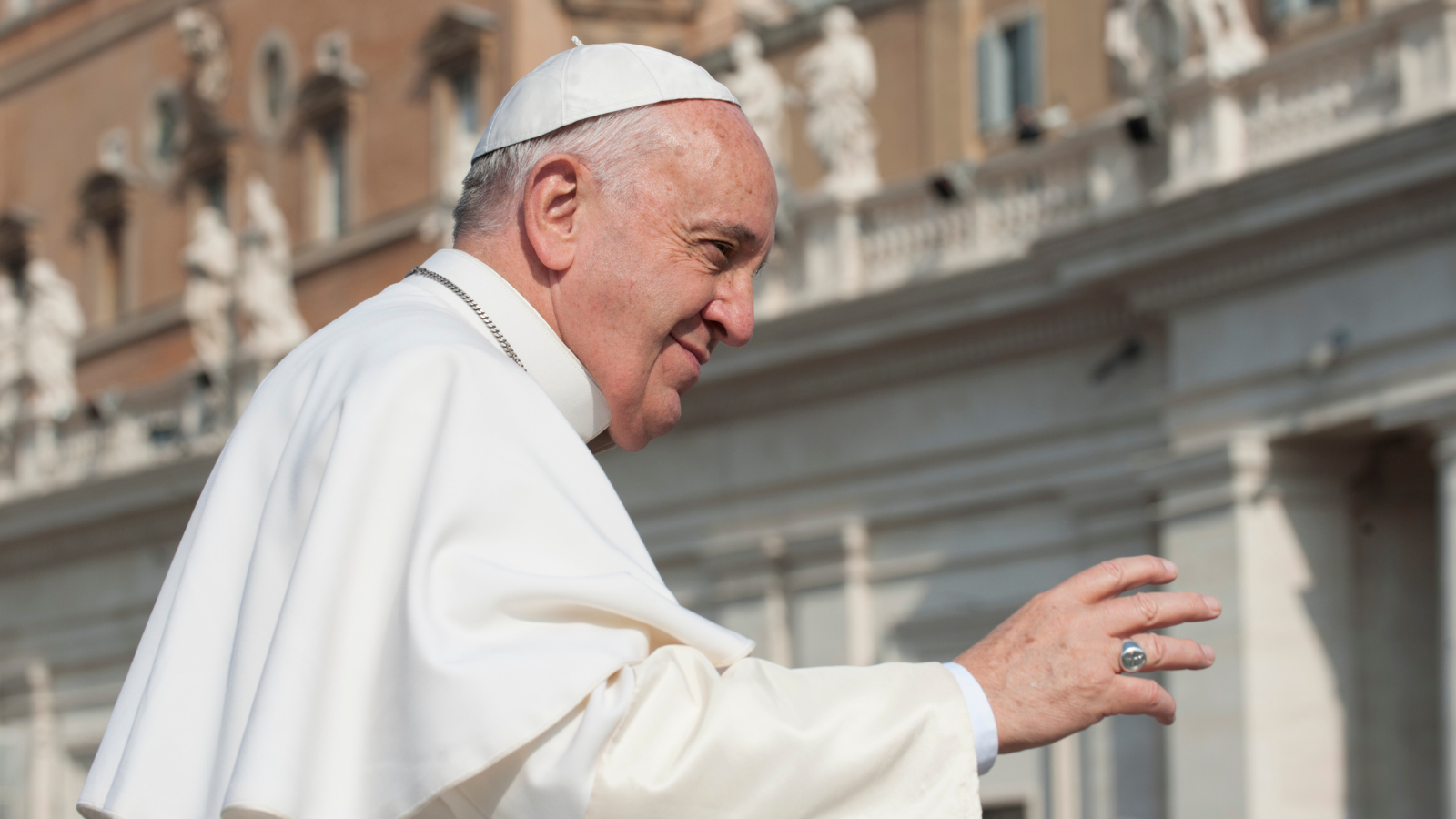
Roman Catholics believe that Jesus established Apostle Peter as the first leader (Pope) of the church and that Peter’s authority has been handed down through an unbroken succession of (sometimes imperfect) popes ever since then.
They base this belief on Matthew 16:18-19, which says:
“And I tell you that you are Peter, and on this rock I will build my church, and the gates of Hades will not overcome it. I will give you the keys of the kingdom of heaven; whatever you bind on earth will be[c] bound in heaven, and whatever you loose on earth will be loosed in heaven.”
By contrast, while many Protestants may consider a particular pope to be a good spiritual leader, they do not consider themselves under the pope’s authority.
Rather, Protestants believe that Christians should be able to read the Bible and make decisions for themselves(possibly under the direction of the spiritual leaders they’ve chosen to submit to).
2. The Role of the Church (Authority)

Similarly, the Roman Catholic Church seeks to maintain all the teachings of the apostles — both that were written down (in the Bible) and those that were passed down orally (through Tradition).
Roman Catholic Churches typically take a “top-down” approach — doing their best to preserve and pass down their teachings through the Church throughout Church history.
By contrast, some Protestants outright reject “Tradition” (which they claim is “man-made”) and instead believe in Sola Scriptura, which says the (written) Bible is all we need.
They take a “bottom-up” approach, in which every individual Christian is able to read and understand the Bible for themselves through the guidance of the Holy Spirit.
3. The Bible
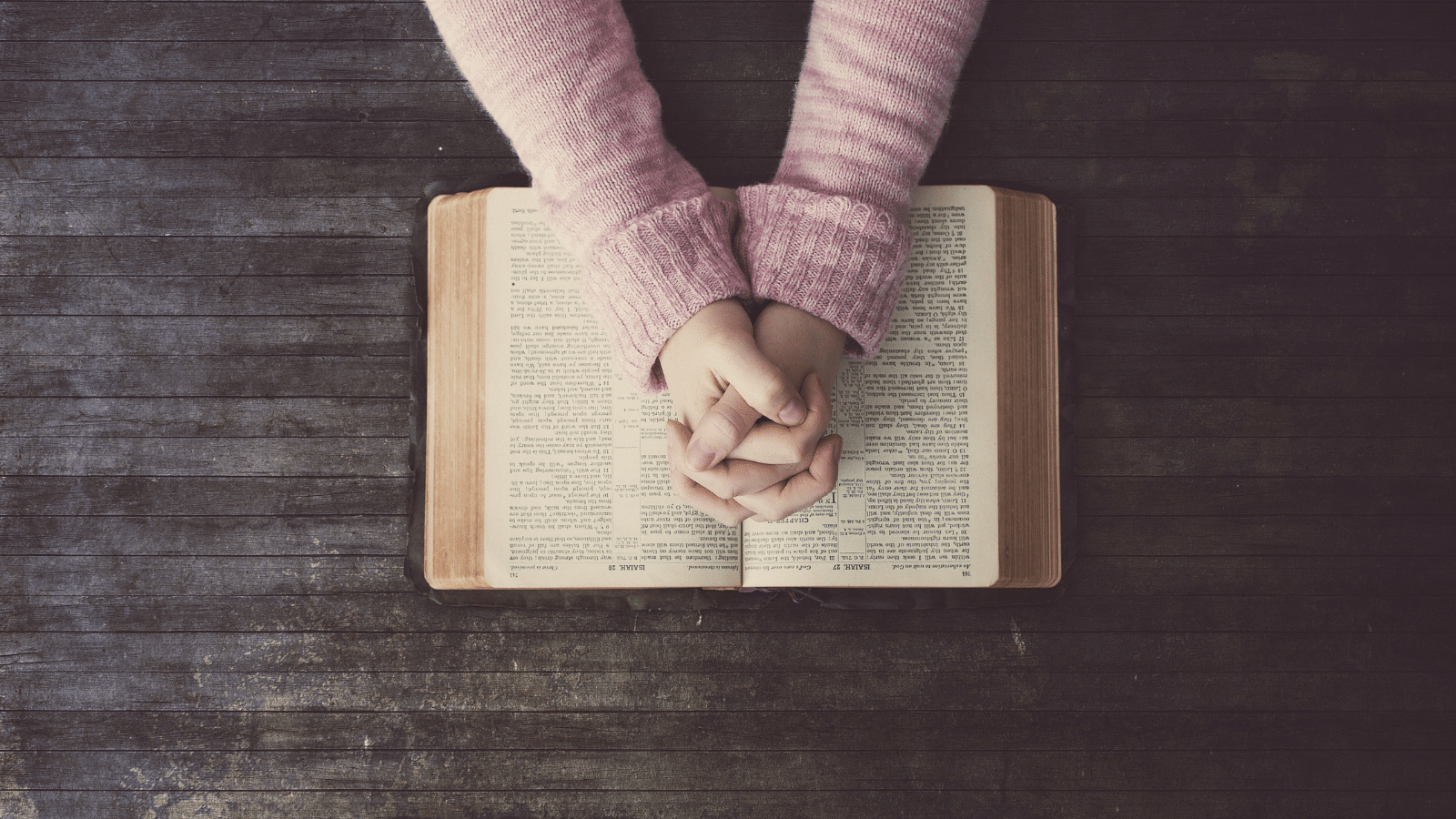
Both Roman Catholics and Protestants believe the Bible is the divinely inspired and inerrant Word of God and includes the teachings of Jesus Christ. And it is useful for teaching, rebuking, correcting and training in righteousness (2 Timothy 3:16-17). However, Catholic Bibles are slightly different.
Roman Catholic Bibles contain 7 additional Old Testament books Protestant Bibles don’t have: Tobit, Judith, 1 and 2 Maccabees, Wisdom of Solomon, Baruch, and Ben Sira (also called Sirach or Ecclesiasticus) as well as minor additions to Esther and Daniel.
Catholics refer to these books as the Deuterocanonical books, while Protestants refer to them as the Apocrypha.
4. Salvation vs. Justification
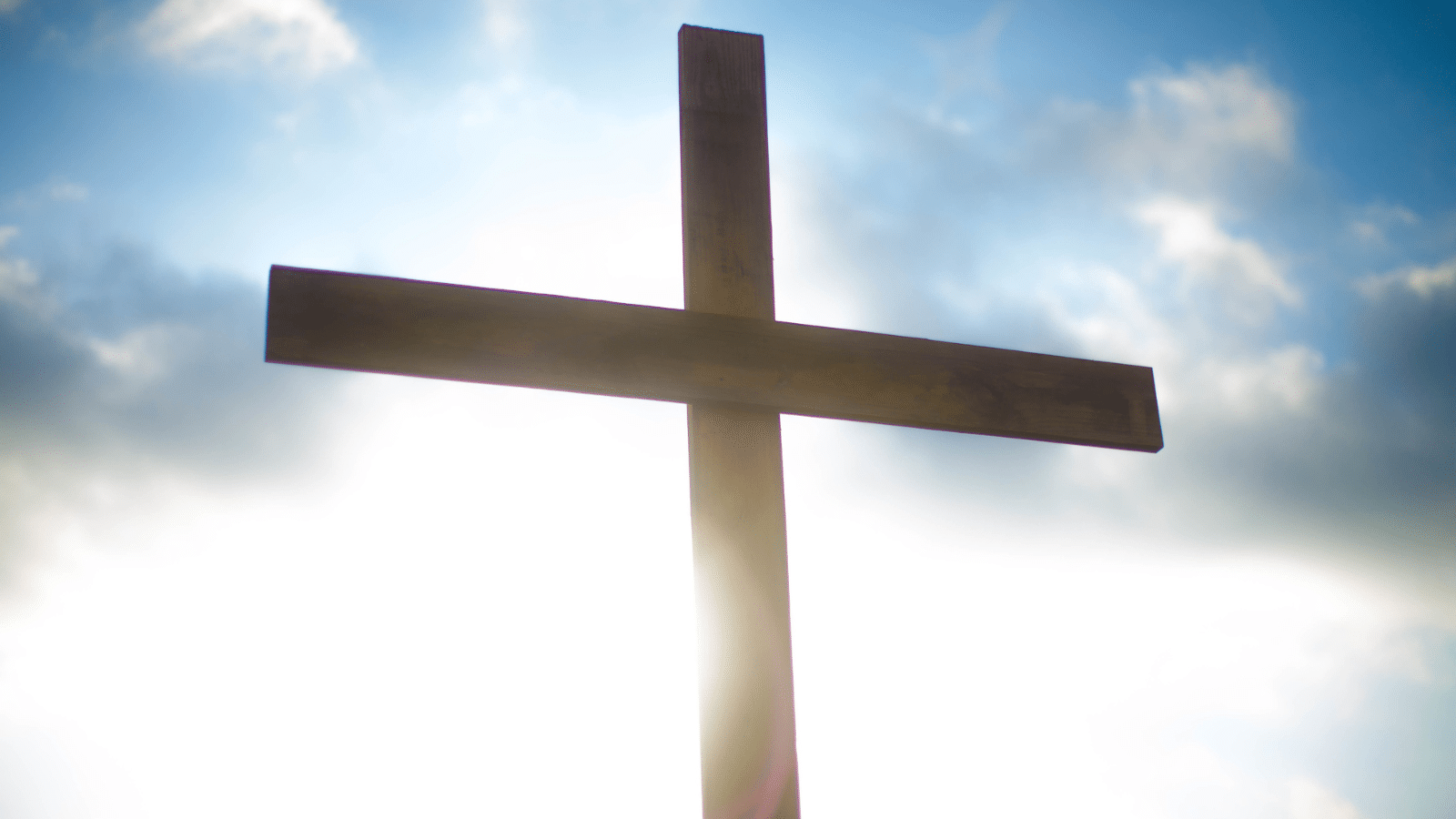
Both Catholics and Protestants believe we cannot earn our salvation ourselves through our good works.
However, there are some subtle but important differences in the way Catholics and Protestants view salvation, justification, and sanctification. And again, I’m generalizing here since individual beliefs vary, especially among Protestants.
(Some, though not all) Protestants believe:
- We are saved through faith alone.
- This means our actions have zero effect on our salvation.
- We are officially “saved” as soon as we make a personal decision to follow Christ (often with the “Sinner’s Prayer”).
- We can know for sure that we are going to Heaven someday.
The Catholic Church teaches:
- We are saved through faith, but it’s a living faith that naturally produces good works as a result.
- Baptism washes away original sin.
- Receiving Christ in the Eucharist forgives venial (minor) sins.
- Catholics should go to confession with a priest to be assured that their sins are officially forgiven.
- We can’t know for sure if we’re going to Heaven because we can’t presume what God will decide.
5. Sacraments
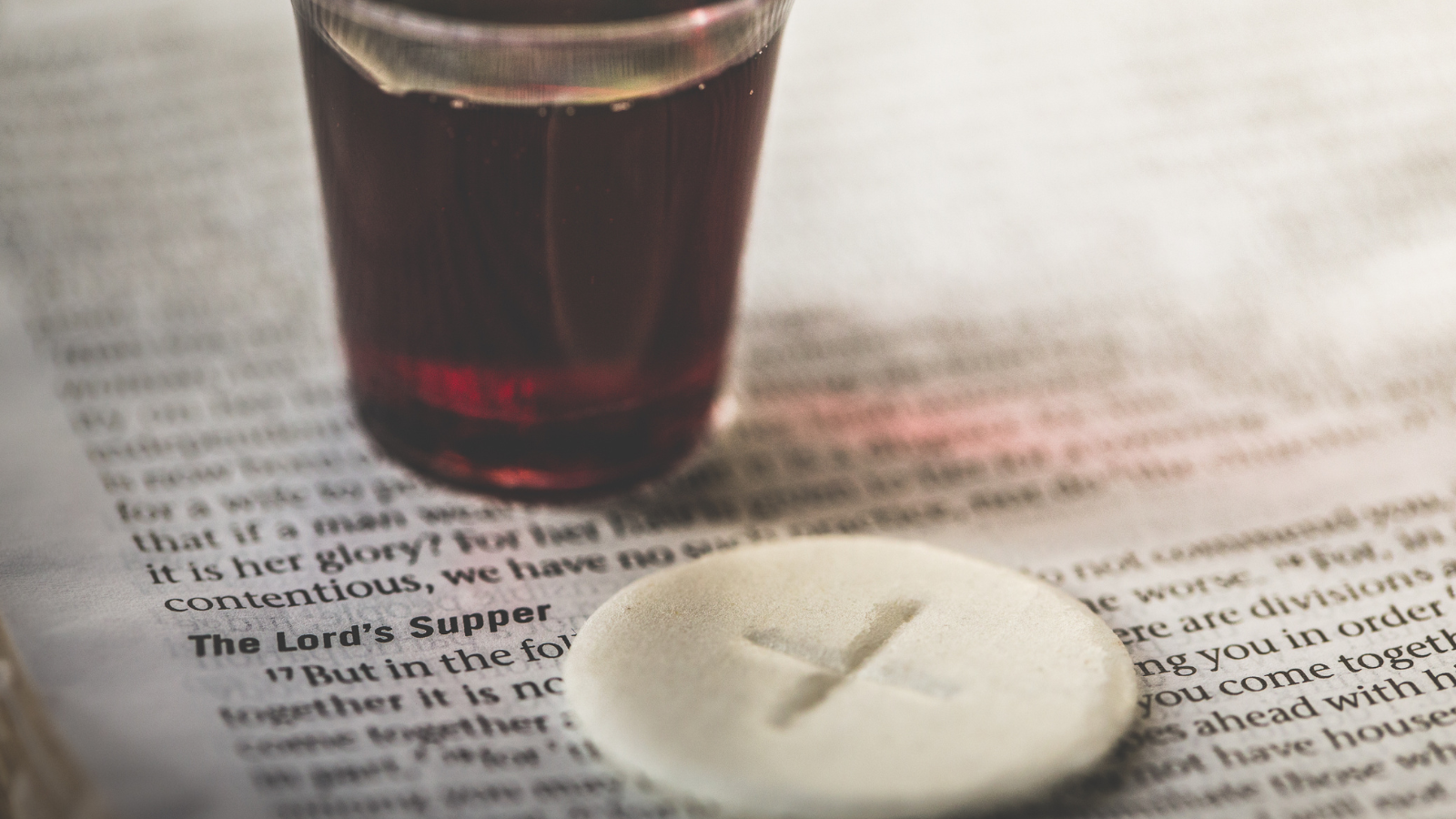
The Catholic church recognizes seven official sacraments: Baptism, Confirmation, Eucharist (communion), Reconciliation (confession), the Anointing of the sick, Holy orders (ordination of Catholic priests and bishops), and marriage.
Catholics believe that when we willingly participate in these sacraments, God uses them to give us an extra measure of grace. As a result, Catholics typically have more formal ceremonies around each of these events.
Protestants also participate in many of these rituals (or very similar ones), though their meaning and guidelines can vary.
6. Church Attendance
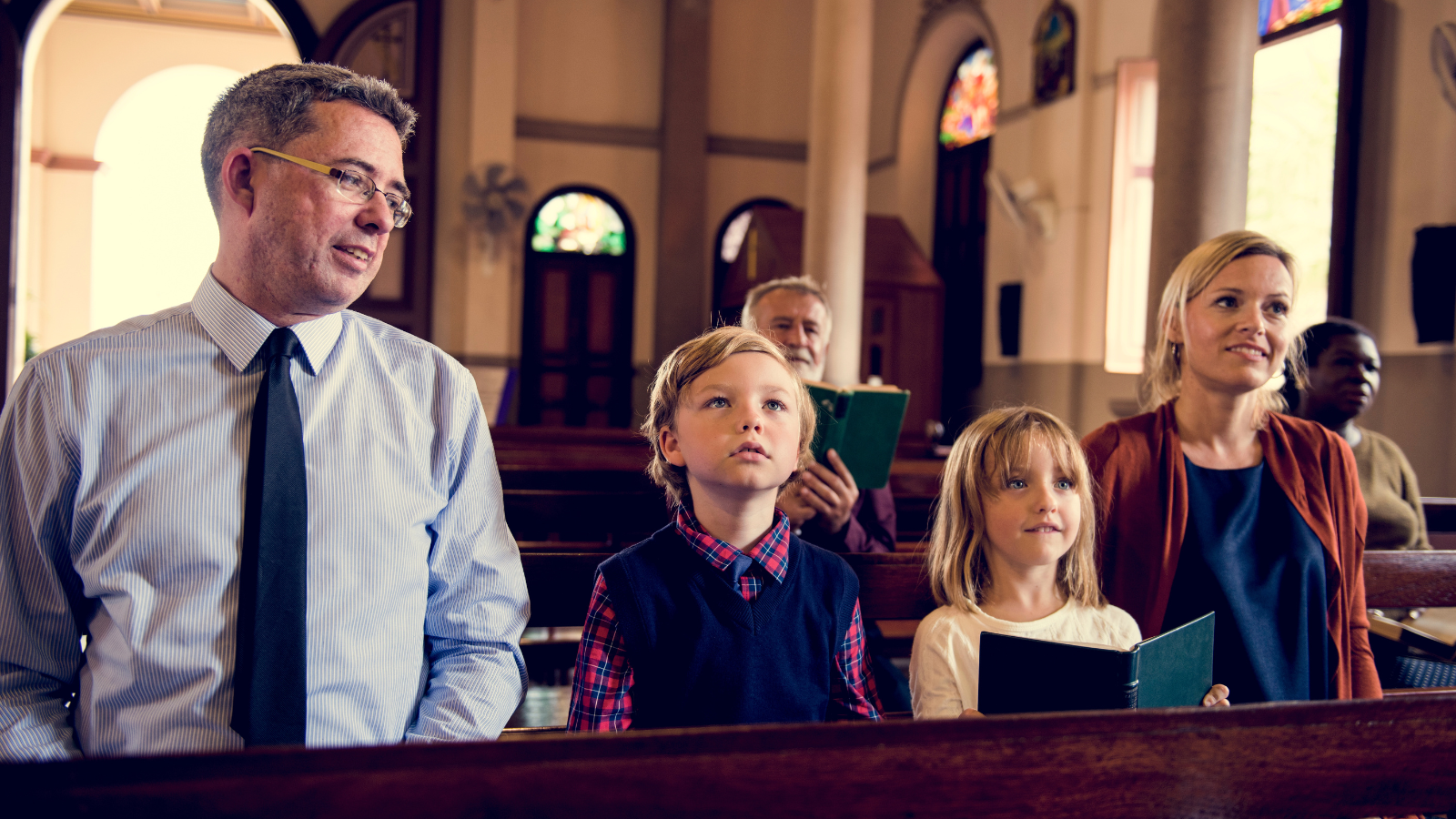
Both Catholic and Protestant Christian church services contain similar elements (music, prayer, reading God’s Word, communion, and preaching, for example), but each has a slightly different focus.
The Catholic church service (called the “Mass”) centers around the Eucharist (communion). Typically, every Catholic church follows the same predetermined schedule of specific readings and prayers so Catholics around the world hear the same Scriptures read on the same days.
Protestant church readings typically center around the pastor’s sermon. Each pastor has the freedom to preach on whatever topic he (or she) wants, though there is usually a strong emphasis on the Bible.
7. The Virgin Mary

Catholics believe that Mary was sinless, that she was a virgin her entire life, that she was taken (body and soul) to Heaven, and that she has made appearances to mankind since her time on Earth. While the Bible does mention “Jesus’s brothers” (Mark 6:3, Mark 15:40), Catholics believe the word “brothers” would be better translated as “cousins.”
Protestants do believe that Mary was a virgin when she gave birth to Jesus, but they do not believe that she remained a virgin or was sinless. They believe she was a good woman but still a normal human woman.
8. Confession and the Forgiveness of Sins
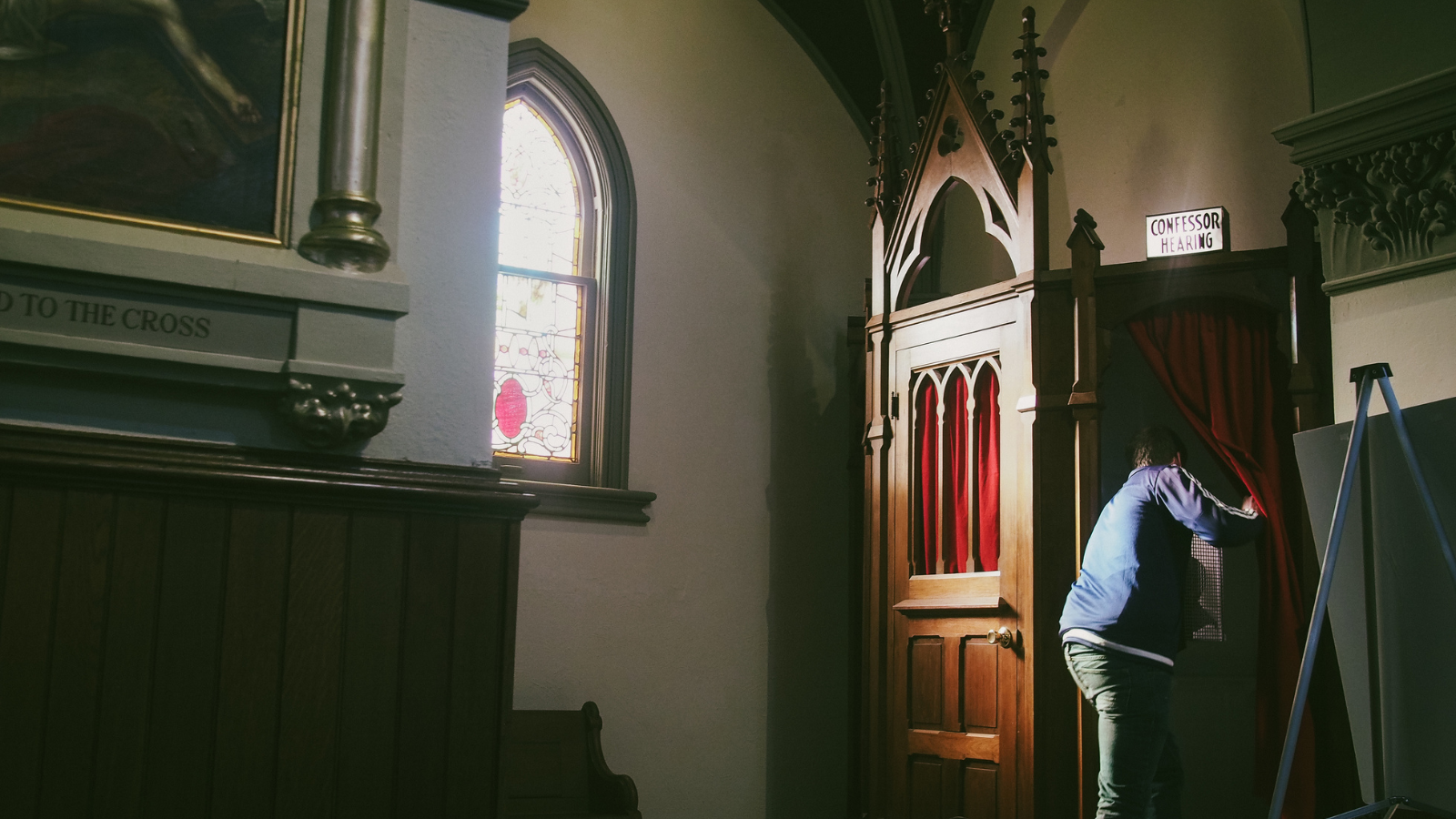
Protestants believe all of their past sins are forgiven when they are “saved” — in other words, when they make a conscious decision to turn from sin, accept Jesus as their Savior, and become a Christian. After this, Protestants confess any and all sins straight to God through prayer for immediate forgiveness. No other action is required.
Roman Catholics make a distinction between original, venial, and mortal sins. Roman Catholics believe taking the Eucharist brings forgiveness for minor (venial) sins, but Catholics are required to confess any grave (mortal) sins to a priest at confession at least once per year.
To be clear, Catholics don’t believe that you can’t pray straight to God for forgiveness. You can. However, they believe you should go to confession as well to receive its many benefits.
9. Saints

Protestants use the word “saints” fairly informally to refer to any Christian — past, present, or future. This is the same way the Bible uses the term in numerous verses, including Psalm 30:4, Matthew 27:52, Acts 9:13, Romans 1:7, 1 Corinthians 1:2, 1 Thessalonians 3:13, and Revelation 5:8.
Catholics make a distinction between “little s” saints (used the same way Protestants use the word) and “big S” Saints, which must meet certain requirements.
In order to become a “Big S” saint, candidates must have lived an exemplary life and have either died for their faith or performed one or two verified miracles. A few well-known Saints include St. Peter, St. Paul, St. Patrick, St. Francis, St. Teresa, and Mary, mother of Jesus.
10. Statues
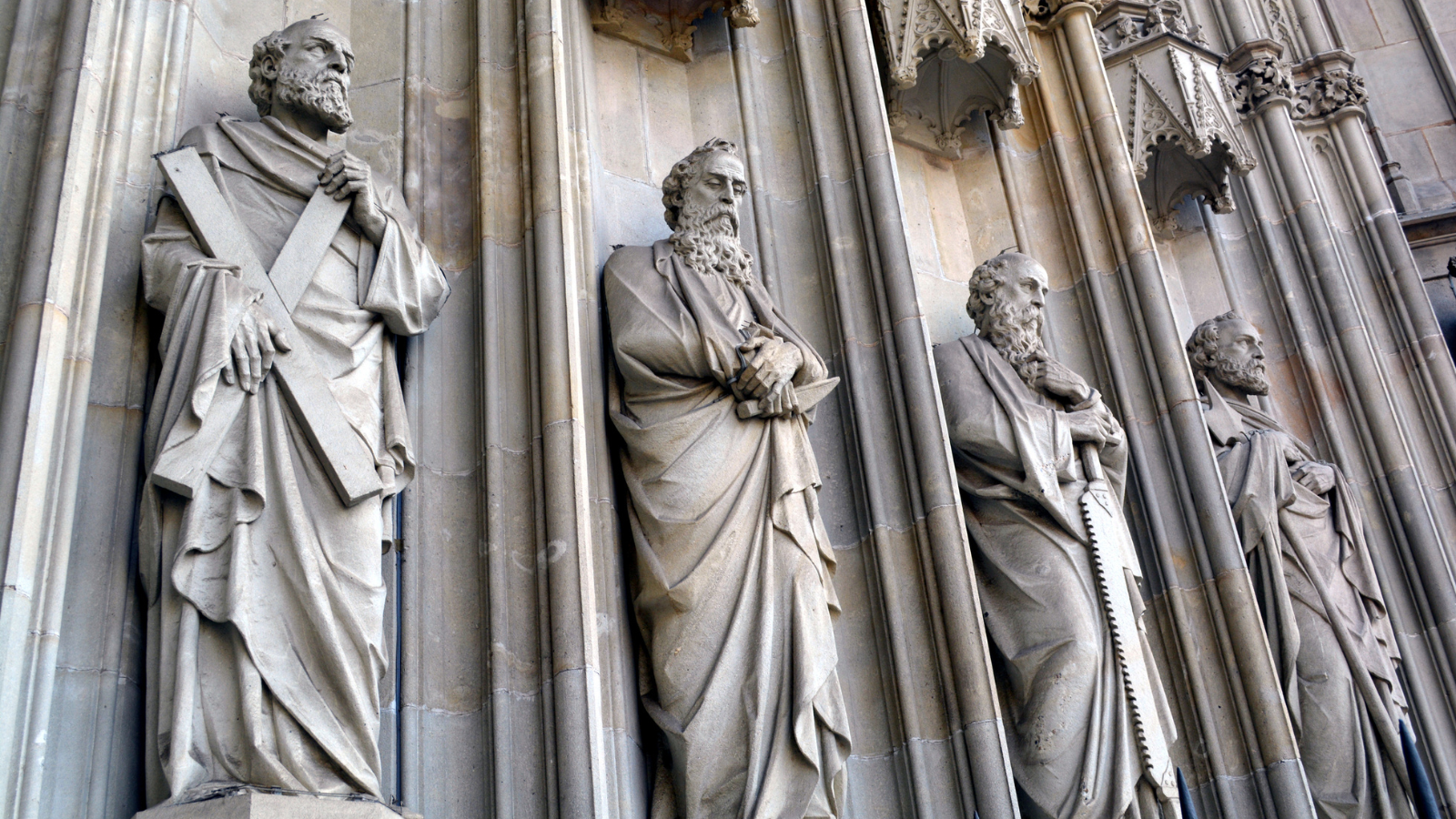
Catholic churches commonly have statues, while Protestant churches rarely do.
However, Catholics do not worship statues. Instead, they use them for decoration, remembrance, and instruction.
Remember: The Catholic church is older than the printing press. Before people could afford their own individual Bibles, they would learn Scripture through church Scripture reading, music, and decorations, including statues and stained glass images.
The use of statues is not idolatry.
In fact, God specifically commanded the Israelites to use statues in the tabernacle (where the high priest would meet with God Himself). We read about this in Exodus 25:18-20.
11. Clergy
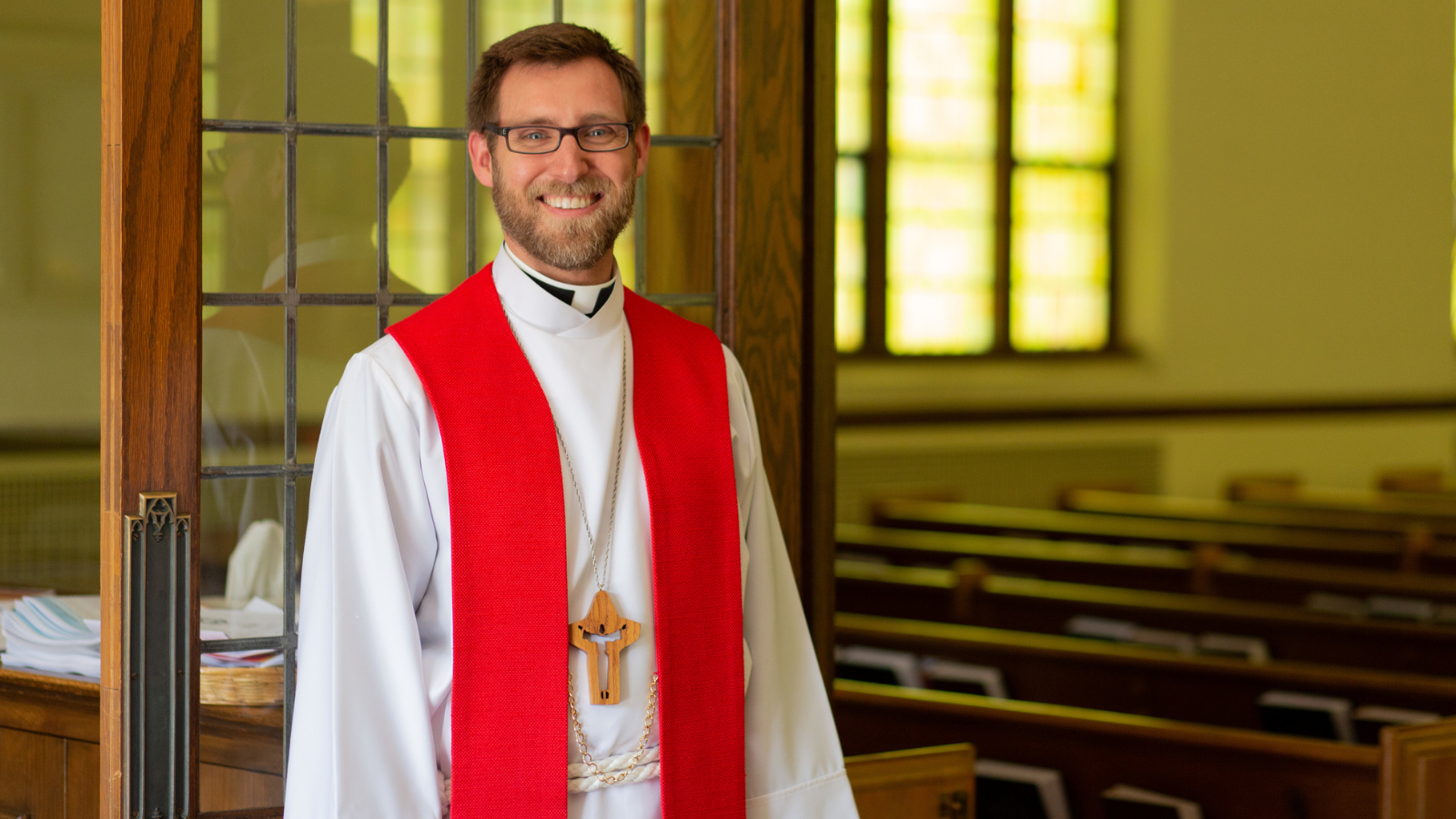
Catholic churches have a strict hierarchy for clergy, while Protestant churches can vary wildly in structure and accountability.
The Pope is the head of the Roman Catholic Church, followed by the cardinals, archbishops, bishops, priests (also called pastors), and deacons. Each rank is under the guidance and accountability of the ranks above them. Only men are eligible to be priests within the Catholic Church.
Within Protestant circles, any person (male or female) can start a brand new church at any time for any reason with no outside accountability or oversight. You could start a new church in a building, a home, a garage, a school, or a bar, if you wanted to.
However, most Protestant churches do have some type of accountability in the form of a church board, elders, and/or deacons. Many churches also choose to become affiliated with a particular denomination, which offers additional structure and oversight.
12. Holy Days
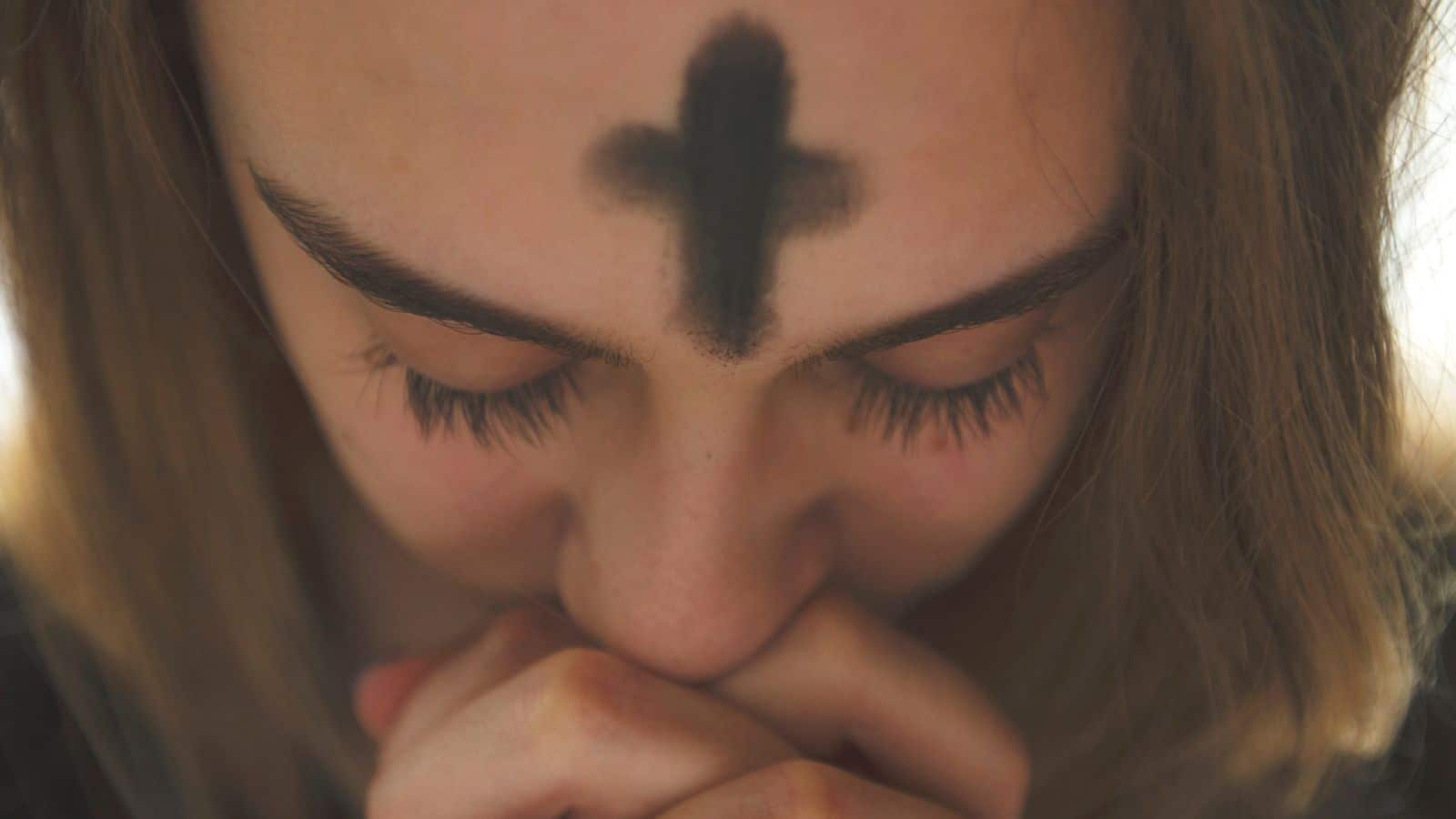
Both Catholic and Protestant Christians observe various holy days, including Christmas, Easter, Palm Sunday, and Pentecost.
However, aside from the major holidays, Catholics typically observe far more holy days as part of their liturgical calendar.
Catholics are also far more likely to intentionally remember or celebrate the various holy days, whether that’s following Catholic Lent Fasting Rules, putting shoes out for St. Nicholas Day, receiving ashes on Ash Wednesday, or attending mass every Sunday and on various holy days/official holidays of obligation.
13. Purgatory

Protestants typically believe that once people make a decision to be a Christian, they go straight to Heaven after their time on Earth.
Catholics believe that Christians go to purgatory first on their way to Heaven. The purpose of this in-between place is to further purify people from their sins before they reach Heaven, where sin cannot exist.
Both Catholics and Protestants believe that those who reject God during their time on Earth will not go to Heaven in the afterlife.
14. Divorce
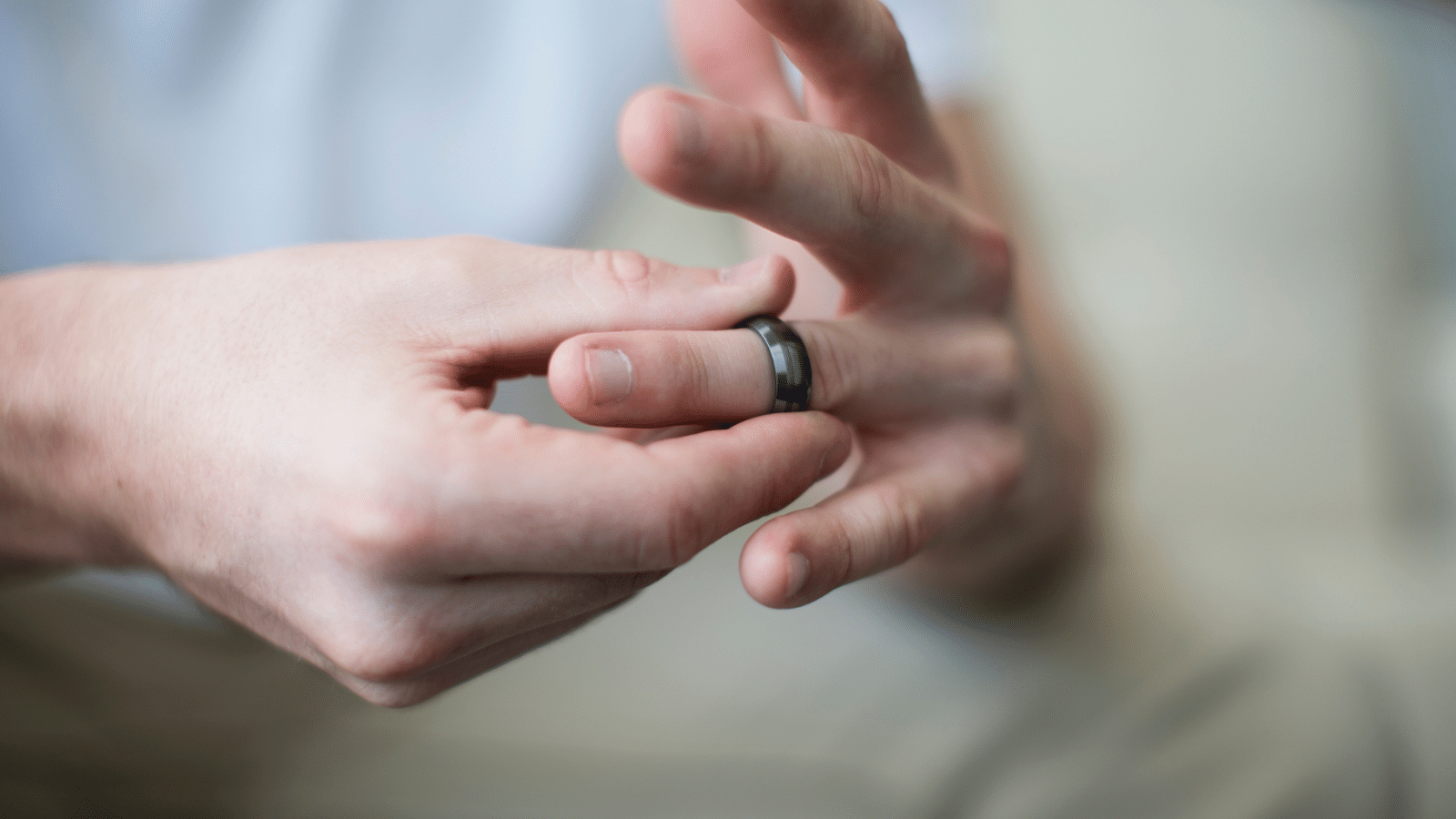
While Protestants typically believe that marriage is designed to be between one man and one woman for life, they believe that there are many legitimate times when divorce is appropriate and moral. In cases where divorce is considered sinful, they believe God’s forgiveness covers the sin, and remarriage is acceptable.
Catholics, however, believe that an official Catholic church marriage is a sacrament and a lasting, binding spiritual contract for eternity. While Catholics also believe there are legitimate reasons for divorce or separation, they don’t believe you can break the spiritual contract.
For this reason, Catholics who are able to have their marriages annulled (a process that says the marriage was never valid) are able to remarry, while those who simply choose to divorce are typically unable to remarry and remain in good standing with the church.
15. Catholics and Protestants Each Have Their Own Quirks and Traditions

In addition to all of their doctrinal and theological differences, Protestants and Catholics also have their own unique quirks and traditions.
For example, Protestant churches are often known for their church carry-ins (pot-lucks), concert-like worship services, having very little art in their churches, and their belief in a personal relationship with Jesus. While individual denominations vary wildly, Protestant churches tend to be more informal or more showy.
Catholic churches, by contrast, are known for their stricter, sometimes old-fashioned beliefs, ornate churches decorated with multiple statues, and religious icons such as candles, rosaries, and more.
Neither is right or wrong — they’re just different!
13 Quirky Things Devout Catholics Do No One Else Understands
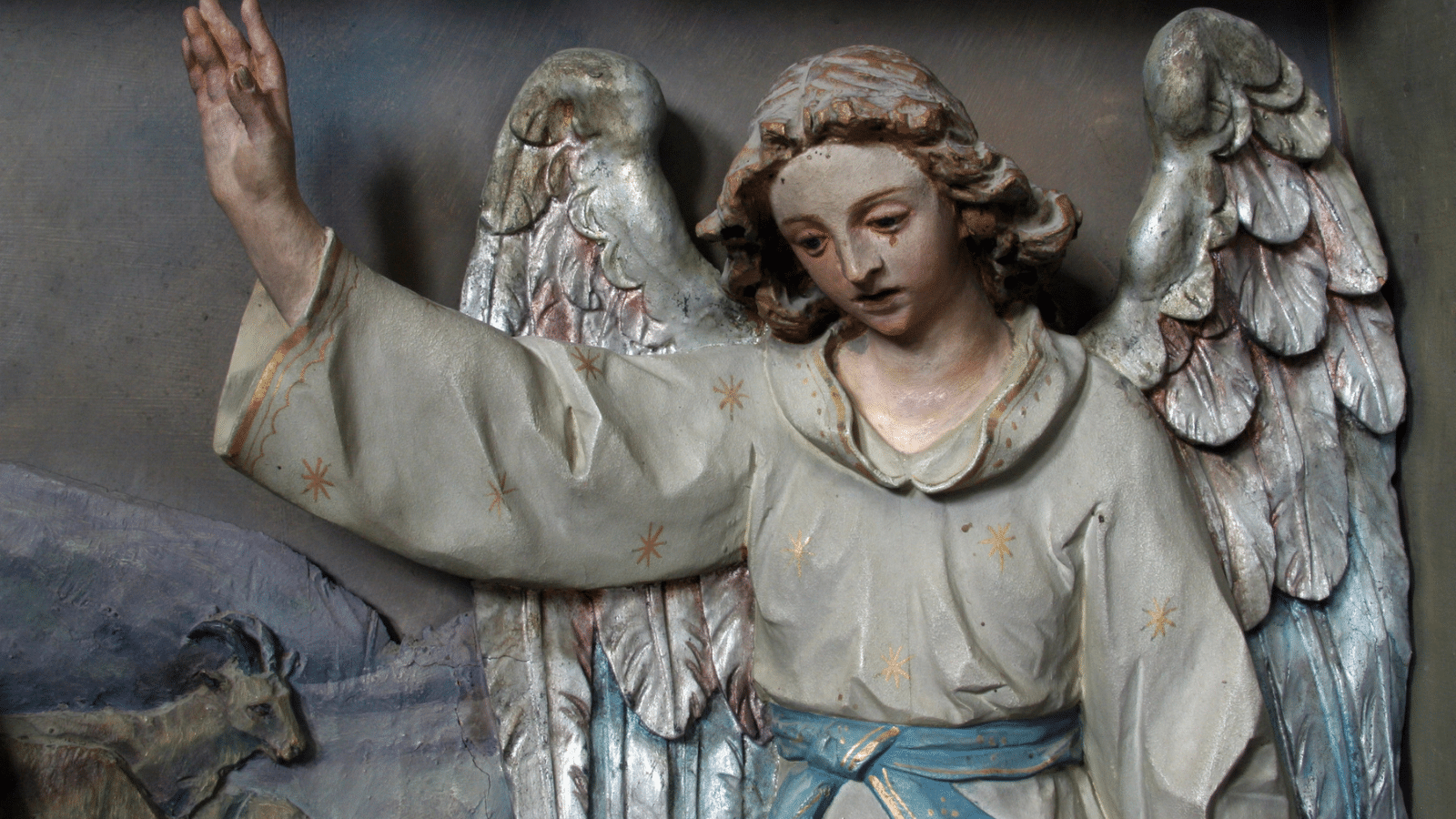
If you’ve spent much time around Catholics you know…
Catholicism isn’t just a religion. It’s also a unique culture with plenty of unique quirks and trends, developed over more than two thousand years the Catholic church has been in existence.
Not a Catholic? Some of these unique quirks may not make sense to you, and that’s okay! Many Catholics have no problem being misunderstood by the majority of society.
But if you’re Catholic yourself or you’ve spent years around others who are (like I have!), you might just get a chuckle at this 13 quirky things devout Catholics do that no one else understands!
13 Quirky Things Devout Catholics Do No One Else Understands
Yes, Christians Should Judge. Here’s Why.

Tired of judgemental Christians? Me too.
But, unfortunately, simply scolding someone online isn’t enough to make all the judgmental haters quit with their biting comments.
Furthermore, contrary to popular belief, the Bible actually says Christians should judge.
Here’s what the Bible says on the matter, why Christians should judge others (at times), and why you probably should too.
Yes, Christians Should Judge. Here’s Why.
Brittany Ann is an ECPA bestselling author and founder of Equipping Godly Women and Monetize My Ministry. She’s also a Christian speaker, podcaster, and conference host. Her work has been featured on numerous TV, radio, and online ministries, including CBN, MSN, Christianity Today, Evangelical Alliance, Patheos, Crosswalk, and more.

